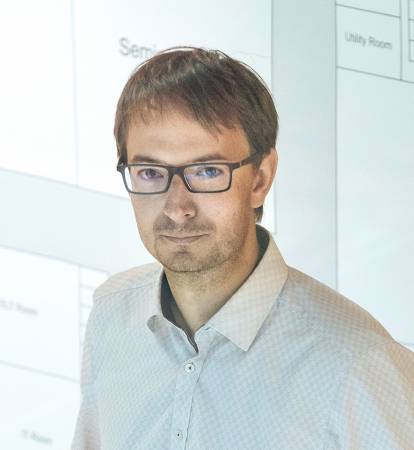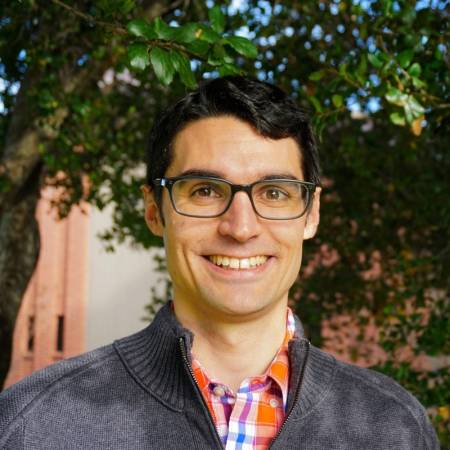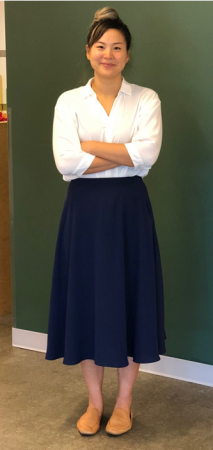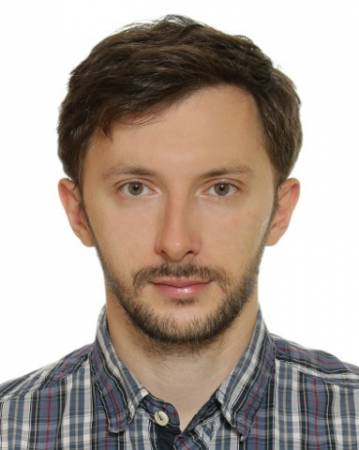Seminar
Beyond ROS: Using a Data Connectivity Framework to build and run Autonomous Systems
Virtual FRC Seminar: Seminar recording: https://cmu.zoom.us/rec/share/x84qF7_q8TlIcpHoyG_DRa58O6i8aaa8hCAW_fEPxEkBGjBVPyzW_lK0YW30RfJ3?startTime=1598551489000 Passcode: qu6)ePH9 Abstract: Next-generation robotics will need more than the current ROS code in order to comply with the interoperability, security and scalability requirements for commercial deployments. This session will provide a technical overview of ROS, ROS2 and the Data Distribution Service™ (DDS) protocol for data connectivity in safety-critical cyber-physical [...]
Learning 3D Reconstruction in Function Space
Virtual VASC Seminar: https://cmu.zoom.us/j/96635002737?pwd=RkxGVlJaUTlhcDdGeVBPcnpTS015dz09 Abstract: In this talk, I will show several recent results of my group on learning neural implicit 3D representations, departing from the traditional paradigm of representing 3D shapes explicitly using voxels, point clouds or meshes. Implicit representations have a small memory footprint and allow for modeling arbitrary 3D toplogies at [...]
Scaling Probabilistically Safe Learning to Robotics
Abstract: Before learning robots can be deployed in the real world, it is critical that probabilistic guarantees can be made about the safety and performance of such systems. In recent years, safe reinforcement learning algorithms have enjoyed success in application areas with high-quality models and plentiful data, but robotics remains a challenging domain for [...]
Compositional Representations for Visual Recognition
Virtual VASC - https://cmu.zoom.us/j/99437689110?pwd=cWxuQkIwWlFFZEk0QkVDUVFiN0lTdz09 Abstract: Compositionality is the ability for a model to recognize a concept based on its parts or constituents. This ability is essential to use language effectively as there exists a very large combination of plausible objects, attributes, and actions in the world. We posit that visual recognition models should be [...]
From kinematic to energetic design and control of wearable robots for agile human locomotion
Abstract: Even with the help of modern prosthetic and orthotic (P&O) devices, lower-limb amputees and stroke survivors often struggle to walk in the home and community. Emerging powered P&O devices could actively assist patients to enable greater mobility, but these devices are currently designed to produce a small set of pre-defined motions. Finite state machines [...]
Making 3D Predictions with 2D Supervision
Abstract: Building computer vision systems that understand 3D shape are important for applications including autonomous vehicles, graphics, and VR / AR. If we assume 3D shape supervision, we can now build systems that do a reasonable job at predicting 3D shapes from images. However, 3D supervision is difficult to obtain at scale; therefore we should [...]
The World’s Tiniest Space Program
Abstract: The aerospace industry has experienced a dramatic shift over the last decade: Flying a spacecraft has gone from something only national governments and large defense contractors could afford to something a small startup can accomplish on a shoestring budget. A virtuous cycle has developed where lower costs have led to more launches and the [...]
Perceiving 3D Human-Object Spatial Arrangements from a Single Image In-the-wild
Abstract: We live in a 3D world that is dynamic—it is full of life, with inhabitants like people and animals who interact with their environment through moving their bodies. Capturing this complex world in 3D from images has a huge potential for many applications such as compelling mixed reality applications that can interact with people [...]
A future with affordable Self-driving vehicles
(Video to appear once approved) Abstract: We are on the verge of a new era in which robotics and artificial intelligence will play an important role in our daily lives. Self-driving vehicles have the potential to redefine transportation as we understand it today. Our roads will become safer and less congested, while parking spots will be repurposed as leisure [...]
Detection of Photo Manipulation with Media Forensics
Abstract: Rapid progress in machine learning, computer vision and graphics leads to successive democratization of media manipulation capabilities. While convincing photo and video manipulation used to require substantial time and skill, modern editors bring (semi-) automated tools that can be used by everyone. Some of the most recent examples include manipulation of human faces, e.g., [...]









